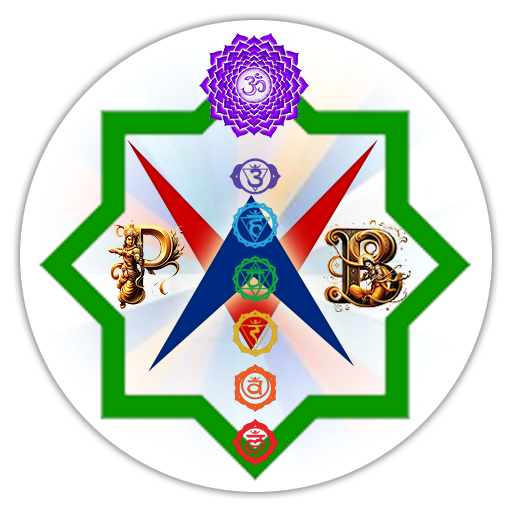కపిల గీత - 205 / Kapila Gita - 205
- Prasad Bharadwaj
- Jul 13, 2023
- 2 min read

🌹. కపిల గీత - 205 / Kapila Gita - 205 🌹
🍀. కపిల దేవహూతి సంవాదం 🍀
✍️. ప్రసాద్ భరధ్వాజ
🌴 5. భక్తి స్వరూపము - కాలమహిమ - 15 🌴
15. నిషేవితేనానిమిత్తేన స్వధర్మేణ మహీయసా|
క్రియాయోగేన శస్తేన నాతిహింస్రేణ నిత్యశః॥
తాత్పర్యము : మానవుడు నిష్కామ భావముతో శ్రద్ధా పూర్వకముగా తన నిత్య నైమిత్తిక కర్తవ్యకర్మలను నెరవేర్చ వలెను. హింసారహితమైన ఉత్తమ క్రియాయోగము అనగా పూజాదికములను అనుదినము అనుష్ఠింపవలెను. నా ప్రతిమను దర్శించుచు, స్పృశించుచు, పూజించుచు, స్తుతించుచు వందనమాచరింప వలెను.
వ్యాఖ్య : బ్రాహ్మణుడు, క్షత్రియుడు, వైశ్యుడు లేదా శూద్రుడుగా తన సామాజిక స్థితిని బట్టి తన నిర్దేశించిన విధులను నిర్వర్తించాలి. మానవ సమాజంలోని నాలుగు తరగతుల పురుషుల నిర్దేశిత విధులు కూడా భగవద్గీతలో వివరించబడ్డాయి. బ్రాహ్మణుల కార్యకలాపాలు ఇంద్రియాలను నియంత్రించడం మరియు సరళమైన, శుభ్రమైన, పండిత భక్తులుగా మారడం. క్షత్రియులు పాలించే ఆత్మను కలిగి ఉంటారు, వారు యుద్ధభూమిలో భయపడరు మరియు వారు దాతృత్వం కలిగి ఉంటారు. వైశ్యులు, లేదా పురుషుల వర్తక వర్గం, వస్తువుల వ్యాపారం, ఆవులను రక్షించడం మరియు వ్యవసాయ ఉత్పత్తులను అభివృద్ధి చేయడం. శూద్రులు లేదా శ్రామికులు ఉన్నత వర్గాలకు సేవ చేస్తారు, ఎందుకంటే వారు చాలా తెలివైనవారు కాదు. ప్రతి స్థానం నుండి, భగవద్గీతలో ధృవీకరించబడినట్లుగా, (స్వకర్మణా తమ్ అభిర్యచా) ఒక వ్యక్తి తన నిర్దేశించిన విధిని నిర్వర్తించడం ద్వారా పరమేశ్వరుని సేవించవచ్చు. బ్రాహ్మణులు మాత్రమే పరమేశ్వరుని సేవించగలరు, శూద్రులు సేవ చేయలేరు అని చెప్పలేదు. ఎవరైనా ఆధ్యాత్మిక గురువు లేదా పరమాత్ముని ప్రతినిధి ఆధ్వర్యంలో నిర్దేశించిన విధులను నిర్వర్తించడం ద్వారా పరమేశ్వరుని సేవించవచ్చు. తనకు నిర్దేశించిన విధులు తక్కువని ఎవరూ భావించకూడదు. ఈ పద్యంలోని మరొక ముఖ్యమైన పదబంధం నాతిహింస్రేణ ('కనీస హింస లేదా ప్రాణత్యాగంతో'). భక్తుడు హింస చేయవలసి వచ్చినా అవసరానికి మించి చేయరాదు. అని చెప్పబడింది.
సశేషం..
🌹 🌹 🌹 🌹 🌹
🌹 Kapila Gita - 205 🌹
🍀 Conversation of Kapila and Devahuti 🍀
📚 Prasad Bharadwaj
🌴 5. Form of Bhakti - Glory of Time - 15 🌴
15. niṣevitenānimittena sva-dharmeṇa mahīyasā
kriyā-yogena śastena nātihiṁsreṇa nityaśaḥ
MEANING : A devotee must execute his prescribed duties, which are glorious, without material profit. Without excessive violence, one should regularly perform one's devotional activities.
PURPORT : One has to execute his prescribed duties according to his social position as a brāhmaṇa, kṣatriya, vaiśya or śūdra. The prescribed duties of the four classes of men in human society are also described in Bhagavad-gītā. The activities of brāhmaṇas are to control the senses and to become simple, clean, learned devotees. The kṣatriyas have the spirit for ruling, they are not afraid on the battlefield, and they are charitable. The vaiśyas, or the mercantile class of men, trade in commodities, protect cows and develop agricultural produce. The śūdras, or laborer class, serve the higher classes because they themselves are not very intelligent. From every position, as confirmed in Bhagavad-gītā, sva-karmaṇā tam abhyarcya: (BG 18.46) one can serve the Supreme Lord by performing one's prescribed duty. It is not that only the brāhmaṇas can serve the Supreme Lord and not the śūdras. Anyone can serve the Supreme Lord by performing his prescribed duties under the direction of a spiritual master, or representative of the Supreme Personality of Godhead. No one should think that his prescribed duties are inferior. Another significant phrase in this verse is nātihiṁsreṇa ("with minimum violence or sacrifice of life"). Even if a devotee has to commit violence, it should not be done beyond what is necessary.
Continues...
🌹 🌹 🌹 🌹 🌹




Comments